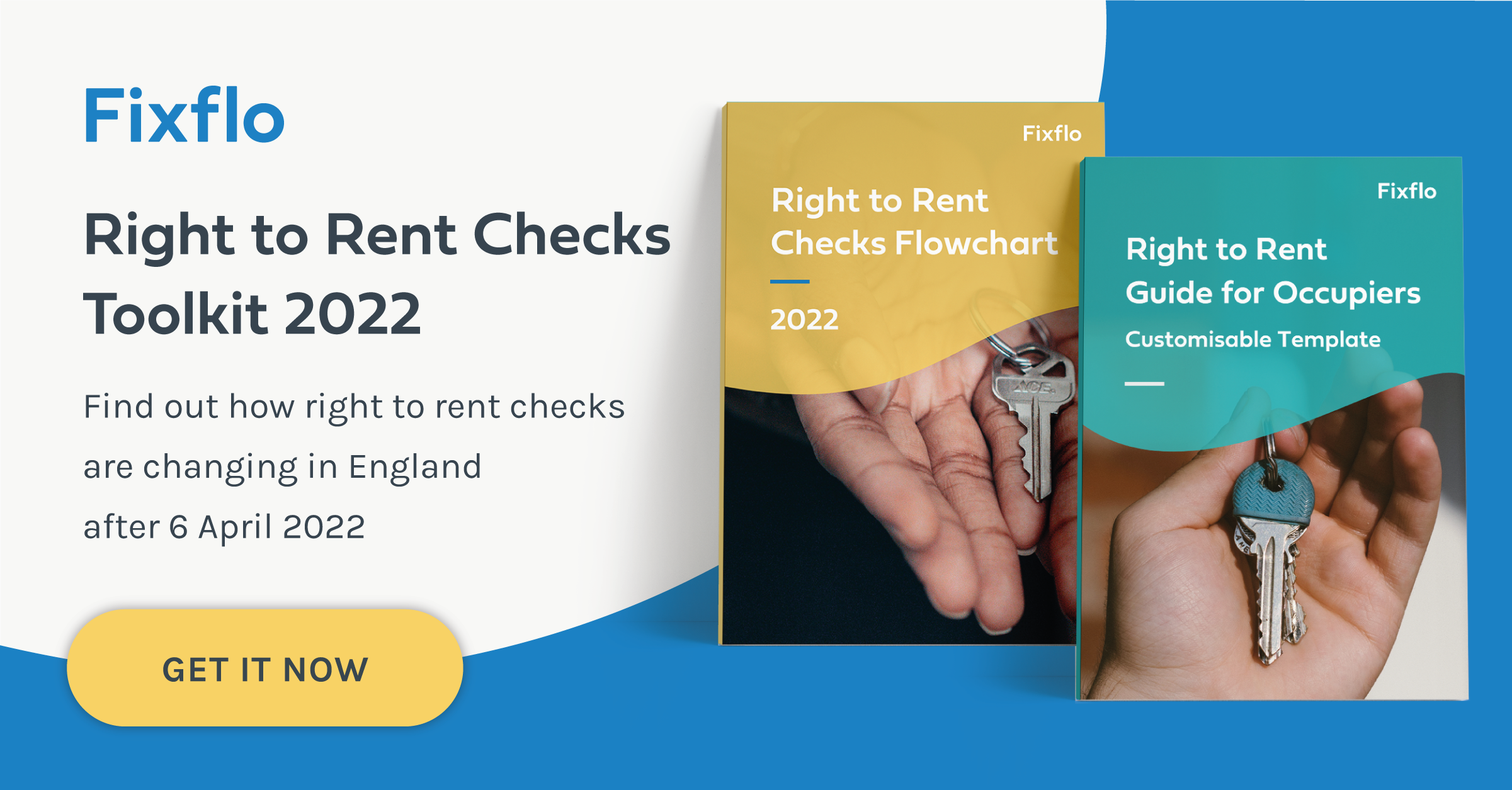What is IDVT and how will it improve right to rent checks?
In a major shake-up of current identification processes, the Government will be introducing identity document validation technology (IDVT) to allow right to rent checks on UK and Irish passport holders to be conducted digitally by certified providers from October 2022.
By law, all landlords have to conduct right to rent checks before the start date of a tenancy agreement to ensure their prospective tenant is not disqualified from renting the property due to their immigration status. Penalties for non-compliance are severe, with offenders liable for either a prison sentence of up to 5 years or an unlimited fine.
Historically, the landlord or agent had to ask to see the original identity documents of all adult tenants, check the documents while the tenants are present, make copies of all original documents and repeat this if and when the tenants’ visas expire. During the Covid-19 pandemic, checks could be conducted during video calls, with prospective tenants providing scanned copies of their identification. This temporary adjustment is due to end on 30 September 2022. For more details on the legislation behind right to rent and how to ensure you’re conducting checks properly, consult this Government guide.
As the temporary measures come to an end, the Government will usher in a new digital identity check process with an identity document validation methodology called Good Practice Guide (GPG) 45 (How to prove and verify someone’s identity) to support landlords in reducing unnecessary and repeated identity transactions and streamline the process of renting property. To find out what IDTV means for the industry, we spoke to Stuart Young, MD of Etive, the company implementing the digital identity trust scheme MyIdentity.
What is IDVT?
IDVT is identity document validation technology. This will allow UK and Irish citizens to prove their identity digitally for the purposes of renting or buying property or carrying out CRB checks for employment.
“If you think about the customer journey, the average tenant may be going through two, three, four or five agents looking for a property – all of those agents would want to take them through an ID check. Each would be doing it slightly differently so for the tenant it’s a high friction process and for the letting agent it’s time-consuming,” explains Stuart Young.
“What we’ve seen over the last couple of years is such a vast improvement in technology for identity verification, you can now do it to a much higher level of security from the comfort of your own home. Covid has accelerated the requirement for a digital means to check on someone’s identity but actually, the accuracy and surety behind digital identification validation technology is far better than presenting an estate agent or credit reference person with a passport – they are not trained to check if that document is false or not, whereas the digital means of checking is far more secure.”

What should estate and letting agents know about IDVT?
The IDVT certification process opened in January 2022 and has already seen a lot of interest. “There are 30 companies going through the DCMS (Department of Culture, Media, and Sport) certification process at the moment,” says Young, who explains that MyIdentity, is not an identity provider. Instead, it is setting up the standards for the scheme for managing those identity providers who are going through self-certification with the Government. “By working through our scheme, they are able to evidence their activities and what they are doing, which will support them in their certification. The key thing here is the certification of identity providers so any user of an identity service provider (IDSP) should be asking – are you working towards DCMS certification?”
Young was at pains to point out that while IDVT is not mandatory, it is likely to be the choice of multiple agencies and companies looking to increase accuracy and reduce time spent on repetitive administration. “Agents can carry on doing face-to-face if that’s what they’d like to do but it’s at their cost. But for those doing digital identity verification now, they will need to use a certified provider from October. What we’re finding from dealing with regulators and representative bodies like some of the larger letting agencies – they all want to move towards digital because it’s far more efficient. Consumers are used to doing things digitally, so it’s part of our expectations. Why travel to get to an agency to show them your passport when it can all be done digitally and instantly within a few minutes?”
So how will customers know whether a provider is certified or not? “It will be clear on the scheme all the identity providers who are certified. When they produce their identity certificates for an estate agent or a conveyancer or a lawyer, they will output a certificate with a stamp on it. In the interim, it will have a MyIdentity stamp on it but once the DCMS have approved the certification, it will come with a government stamp on it – like a car MOT certificate so the estate agent or landlord can trust and use that document. It’s all about trust and confidence in the process.” It’s also likely the Government will provide a list of certified providers in the run-up to October.
The latest information on digital identity certification can be found on this GOV.UK guidance page. It is important to note that IDSPs can only be certified by UKAS (United Kingdom Accreditation Service) approved organisations (found on their website) and cannot achieve certification against the right to work, right to rent and criminal record checks scheme via another route.
What was learned from MyIdentity’s IDVT pilot scheme?
The scheme was widespread, including estate agents, licensed conveyancers, lawyers and mortgage intermediaries and mortgage lenders operating across England & Wales. While it focused primarily on the sale and purchase sector, once the scheme goes live it will take in a number of different sectors, including property rental, the financial sector, and right to work.
“The scheme has been hard work,” Young admits, explaining that persuading people to adopt new methodologies and improving standards was a steeper learning curve than the technology itself. “The technology exists for these solutions, but it’s about getting people to change their mindset. It’s about getting businesses to change their processes and procedures, these are the more challenging issues, getting companies to understand that they can rely on IDVT as opposed to believing ‘I have to meet the client and match their face to the passport they’re presenting’ which is completely inefficient. But we have been working with the Government and the industry, including regulators and representative bodies, on IDVT and it is very much an industry-backed scheme, because they can see the merit in it.”
What are the Government’s plans for applying IDVT right to rent checks?
Agents will be able to find certified IDVT providers on this page when they are available. Further information about the new processes will be released by the Government during the course of the year, as more companies get certified and the process for the use of identification document validation technology is clarified.
IDVT is part of a move to streamline and simplify processes, minimising time spent on repetitive administration, reducing the incidences of property and identity fraud while also reducing the capacity for human error. With time increasingly at a premium and evidence suggesting the way that we work and interact has been permanently changed by Covid, technology must take a front seat. As people move towards working from home more regularly, technology is essential for staying ahead.
Identity verification is just one of many services that benefit from being digitally managed. As the industry gets back on its feet after the global pandemic, we can expect to see more processes following suit. Fixflo’s Planned Preventative Maintenance (PPM) module lets you ‘set and forget’ tasks such as right-to-rent checks and re-checks, to ensure that they are not overlooked. The specialist repairs & maintenance management system is also seamlessly integrated with 40+ popular property management solutions. Automating processes with safe, secure and reliable digital tools wherever possible is the best way to maintain high levels of service for your clients while staying compliant with regulations.
Stay up to date with changes and understand how to carry out right to rent checks no matter the situation with our downloadable Right to Rent Toolkit.
BLOG DISCLAIMER
This article is intended for information purposes only and does not constitute legal advice. If you have any questions related to issues in this article, we strongly advise contacting a legal professional.
These blog posts are the work of Fixflo and are licensed under a Creative Commons Attribution-ShareAlike 3.0 Unported License. In summary, you are welcome to re-publish any of these blog posts but are asked to attribute Fixflo with an appropriate link to www.fixflo.com. Access to this blog is allowed only subject to the acceptance of these terms.


